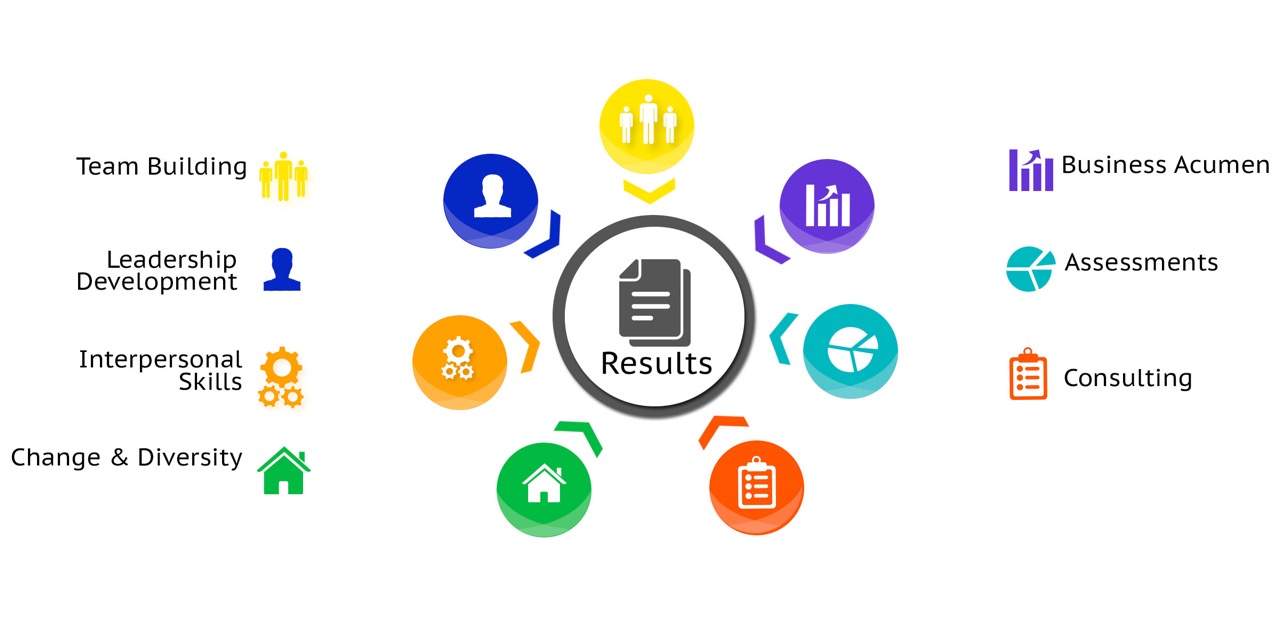About Learning Technologies, Inc.
Learning Technologies Inc. is a management consulting firm, dedicated to helping clients reach their business goals by leveraging their greatest resource – their people. Founded in 1990, we have years of professional experience in training, human resource consulting, leadership, and outdoor team building. We are a leader at “Building Teams and Developing Leaders.” By building on our client’s existing training and working within their unique culture, we maximize the actual transference of training back into the workplace.
What We Do

Bottom line, we build success and FOCUS ON RESULTS!
Training Philosophy
Every LTI program is custom designed to accomplish one objective, to achieve results. In order to reach this goal, we leverage every opportunity at our disposal including internal resources, industry research, cultural drivers, and staff expertise. Even though the topic, staff, type of program, and even location may change, the fundamental nature of every LTI program remains the same… powerful, professional, well designed programs designed to achieve lasting results.
“We forget what we hear, we remember what we see, we understand what we do.” Our programs revolve around “doing.” By targeting key concepts, we significantly reduce lecture time to a bare minimum. Our goal is for participants to actually practice and apply new concepts. It is not uncommon for a 1-day session to have only 20-30 minutes of lecture.
For Example: To develop virtual teaming skills, we might begin with a 30 minute segment on critical techniques (based on current research) followed by a series of simulations that require direct application and refinement of these skills.
Our goal is to break learning down into manageable chunks. Typically we change topic or pace every 15 to 30 minutes. This is especially important since most adults have a functional attention span of only 20 minutes.
For Example: In a typical hour of training, participants will have likely discussed several key concepts, been exposed to new content or perspectives, had an opportunity to reflect on direct application, experienced first- hand involvement in applying these concepts, and developed plans for utilizing these skills.
Just as in sales, it takes multiple exposures to a new concept or idea before it is remembered. Our strategy is not mere repetition, but rather multiple perspectives and applications of key concepts. Through repetition and reinforcement, actual retention soars from 10 to 90 percent.
For Example: A concept that is introduced early in a program, such as the importance of tracking the right metrics, is reinforced by subsequent topics, illustrated by case studies, and reinforced by business-focused activities and facilitated debriefs.
The joy of working with adults is that they bring a wealth of first hand experience to every training session. Our programs are designed to tap into this resource, both formally and informally.
For Example: A discussion on critical leadership skills, while based on current research, is made real and applicable through participant examples and experiences (which also helps the group adapt the topical material to their specific environment).
A major advantage of working with LTI is the ability to draw from a large pool of consultants. This enables us to respond to a wide range of topical needs, situations, and industries with both credibility and effectiveness.
For Example: When a trainer speaks the same language as the group, and has experience in their industry, more time can be spent on the topic at hand rather than bridging the instructor-student gap.
The reason we customize every LTI program is to ensure the best fit, minimize wasted training time, and maximize retention by using the right training approach. Possibly the most important reason is to develop a program that supports and reinforces your corporate culture and direction.
For Example: Teaching cross-functional teaming techniques in a traditional matrix organization will likely create confusion and frustration while modifying this topic to cross-functional networking can provide a valuable set of functional skills.
We are always very sensitive to not open issues or topics that cannot be resolved in our allocated training time. We take great care to push participants as far as possible without overstepping realistic boundaries.
For Example: Confronting and opening sensitive issues during a 3 hour program will do more harm than good, while the same issues can be effectively addressed and resolved during a 2 day session.
We utilize a wide range of training methods to accommodate the variety of ways people prefer to learn. From more introspective approaches, such as personal reflection and pre-course assignments, to more interactive and extraverted approaches such as interactive activities and discussions.
For Example: During any LTI program, participants will likely hear new ideas, see how they play out in real situations, practice new skills, discuss direct applications, plan what to do next, and consider the consequences if nothing changes.
Our objective is to achieve results, not to deliver programs. We are well known for adjusting on-the-fly in order to maximize our effectiveness. As we learn more about the group, their experience, and their situation, we adjust our path to best meet their objectives.
For Example: In a leadership skills class, we quickly discover that the group is very well versed in basic leadership concepts, but is lacking in actual application. Rather than focusing on additional concepts (our original plan), we quickly shift to implementation. The day is spent addressing obstacles, identifying personal challenges, practicing specific skills, and developing realistic action strategies.
Knowing that our contact time with a group is typically limited, we strive to identify and create reinforcement opportunities to ensure that concepts stick. These tools range from coaching managers and leveraging other internal training sessions to direct follow-up with the participants. Even casual follow-up at the right interval will improve retention.
For Example: Most LTI programs are followed by a post-program packet that includes an Executive Report (summarizing insights and observations to help you reinforce progress and better plan future training), a summary of level 1 evaluations, additional resources, and photos (if taken during your program). Some programs are followed by a specific reinforcement schedule that might include regular distribution of Tips and Techniques (topic specific), follow up meetings, or even one-on-one coaching.
What Makes Us Different
- Relevant: We take the time to really understand your organizational culture and business drivers.
- Customization: We customize every program so you don’t waste valuable training time.
- Business Focused: We connect with your management style and other training efforts to reinforce core messages.
- Professional: We are seasoned business professionals who understand your challenges.
- Results: We focus on helping you reach your business goals rather than simply delivering a product.
Our Staff

Our expert trainers and facilitators are business professionals who come from a broad range of industries including sales, pharmaceuticals, manufacturing, education, and technology to name a few. While their training skills are exceptional, what really sets them apart is their business expertise. They’ve been in your shoes and know first-hand the challenges you face. This impressive range of skills, experience, and styles enables us to staff your program with people who understand your business and can “speak your language.” This significantly improves the impact and relevance of your training because we come in with strong credibility and are able to get to the heart of issues more quickly.
Our Managing Partners
 Laine LaPasha
Laine LaPasha
Laine is a seasoned professional with over ten years of corporate banking experience working for such banks as Chase Manhattan and Bank of America. Her extensive consulting experience focuses on team dynamics, conflict and communication skills, leadership, and group facilitation. Her expertise includes a wide variety of assessments including MBTI, DiSC, LSI, and many others. As a certified Coast Guard Captain, she has developed one of the industries premiere business sailing programs, LTI’s own On Course to Excellence.
 Dan LaPasha, Ph.D.
Dan LaPasha, Ph.D.
Dan has a unique and versatile mix of business, academic, and professional experience. He has a Ph.D. from North Carolina State University and is known in the industry for his extensive background in experiential training and program design. He is certified in MBTI, Five Factor, DiSC, and a number of other commercial assessments. He is accomplished at custom assessment creation, evaluation, and interpretation. He provides a powerful client-focused approach to program design and group development.
